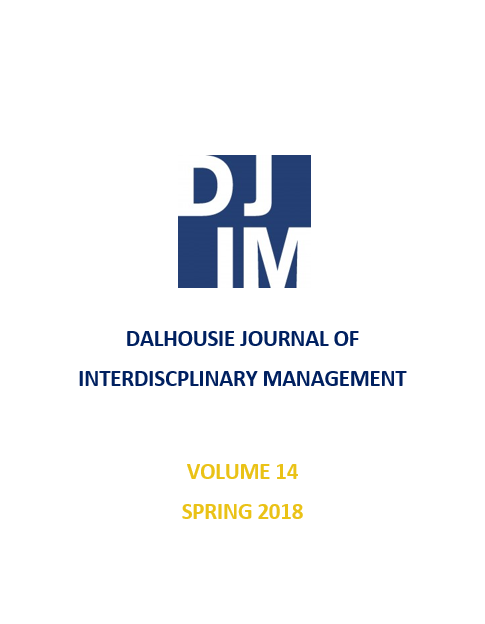The Language of Cataloguing: Deconstructing and Decolonizing Systems of Organization in Libraries
Keywords:
cataloguing, representation, language, social justice, librarianshipAbstract
This paper analyzes the language of cataloguing because the information that librarians and other information professionals provide to others has a huge impact both on how others are viewed and how others view themselves. This ultimately comes down to the way in which words are given meaning and interpreted according to the socio-political climate of the time. As society, politics, and economies change, so too does the language of representation. Therefore, the Library of Congress subject headings (LCSH) as a system of categorization is only as effective as the language that is used to define what is and what is not. Moreover, those who control the language of categorization control access to the information categorized within that system. Consequently, librarians must always be critical of the language they are using in their information organization systems. Language is continuously evolving according to societal discourse and politics; therefore, if libraries are to maintain their social responsibility to provide information to all, including socially disadvantaged and marginalized peoples, then librarians must continuously advocate for changes to subject headings. Librarians must also recognize and reflect on their own internal biases when cataloguing and make it their job to deconstruct language and decolonize the systems that perpetuate the continued marginalization of others. To remain neutral about these systems is the very opposite of what it means to be a librarian in the twenty-first century.
References
Adler, M. (2016). The case for taxonomic reparations. Knowledge Organization, 43(8), 630-640.
Aguilera, J. (2016, July 22). Another word for “Illegal Alien” at the Library of Congress: Contentious. The New York Times. Retrieved from https://www.nytimes.com/2016/07/23/us/another-word-for-illegal-alien-at-the-library-of-congress-contentious.html
Benemann, W. E. (1987, September). From Rubik‘s cube to designer drugs: American graffiti, library-style. American Libraries, 18(8), 650-651.
Derrida, J. (1986). Différance. In M. C. Taylor (Ed.), Deconstruction in context: Literature and philosophy (pp. 396-420). Chicago: University of Chicago Press.
Drabinski, E. (2013). Queering the catalog: Queer theory and the politics of correction. Library Quarterly: Information, Community, Policy, 83(2), 94-111.
El-Hoshy, L. M. (1998, August). Charting a changing language with LCSH. Library of Congress Information Bulletin, 57(8), 201.
Farkas, M. (2017, January 3). Never neutral: Critical librarianship and technology. American Libraries Magazine. Retrieved from https://americanlibrariesmagazine.org/2017/01/03/never-neutral-critlib-technology/
Hajibayova, L., & Buetne, W. (2017). Representation of Indigenous cultures: Considering the Hawaiian hula. Journal of Documentation, 73(6), 1137-1148.
Hayden, C. (2017, November 18). Welcome message from Carla Hayden, 14th librarian of congress. The Library of Congress: About the Library. Retrieved from https://www.loc.gov/about/
International Federation of Library Associations and Institutions (IFLA). (2012, August). IFLA code of ethics for librarians and other information workers (full version). Retrieved from https://www.ifla.org/publications/node/11092
Librarians implement TRC calls to action. (2017, September 19). [Radio broadcast episode]. Whitehorse, YT: Canadian Broadcasting Corporation. Retrieved from https://soundcloud.com/cbcyukon/librarians-implement-trc-calls-to-action
Library of Congress. (n.d.). SACO – Subject Authority Cooperative Program. Retrieved from https://www.loc.gov/aba/pcc/saco/
Littletree, S., & Metoyer, C. A. (2015). Knowledge organization from an Indigenous perspective: The Mashantuket Pequot Thesaurus of American Indian Terminology Project. Cataloging & Classification Quarterly, 53(5-6), 640-657.
Lor, P. J., & Britz, J. J. (2012). An ethical perspective on political-economic issues in the long-term preservation of digital heritage. Journal of the American Society for Information Science and Technology, 63, 2153-2164. doi: 10.1002/asi.22725
Lor, P. J. (2016). Risks and benefits of visibility: Librarians navigating social and political turbulence. Library Trends, 65(2), 108-127.
Moorcroft, H. (1993). The construction of silence. The Australian Library Journal, 42(1), 27-32.
Parent, I. (2015). Knowledge systems for all. Cataloging & Classification Quarterly, 53, 703-706.
Peet, L. (2016, June 13). Library of Congress drops illegal alien subject heading, provokes backlash legislation. Library Journal. Retrieved from http://lj.libraryjournal.com/2016/06/legislation/library-of-congress-drops-illegal-alien-subject-heading-provokes-backlash-legislation/#_
Rubin, R. E. (2015). From past to present: The history and mission of libraries. In Foundations of library and information science (4th ed., pp. 31-77). New York: Neal-Schuman Publishers, Inc.
Weller, T. (2007). Information history: Its importance, relevance, and future. Aslib Proceedings, 59, 437-448. doi 10.1108/00012530710817627
White, L. (2003). Second language acquisition and universal grammar. Cambridge: Cambridge University Press.
Downloads
Published
Issue
Section
License
Papers published in the Dalhousie Journal of Interdisciplinary Management must be the original, unpublished work of the author. Contributors are responsible for obtaining any copyright clearances required in relation to their work.
Authors submitting a paper to the Dalhousie Journal of Interdisciplinary Management automatically agree to grant a limited license to DJIM if and when the manuscript is accepted for publication. This license gives permission for DJIM to publish the paper in a given issue and to maintain the work in the electronic journal archive. DJIM also submits issues to institutional repositories and Open Access repositories.
Contributors agree to each reader accessing, downloading, or printing one copy of their article for their own personal use or research. All other copyrights remain with the author, subject to the requirements that any republication of the work be accompanied by an acknowledgement that the work was first published in the Dalhousie Journal of Interdisciplinary Management and that the DJIM Editorial Chair must be notified of any republication of a work first published in DJIM.
Dalhousie Journal of Interdisciplinary Management
c/o School of Information Management
Faculty of Management
Dalhousie University
Kenneth C. Rowe Management Building
6100 University Avenue
Halifax, Nova Scotia B3H 3J5
Canada
Email: djim@dal.ca
Authors should recognize that, because of the nature of the Internet, the publisher has no control over unauthorized copying or editing of protected works.


